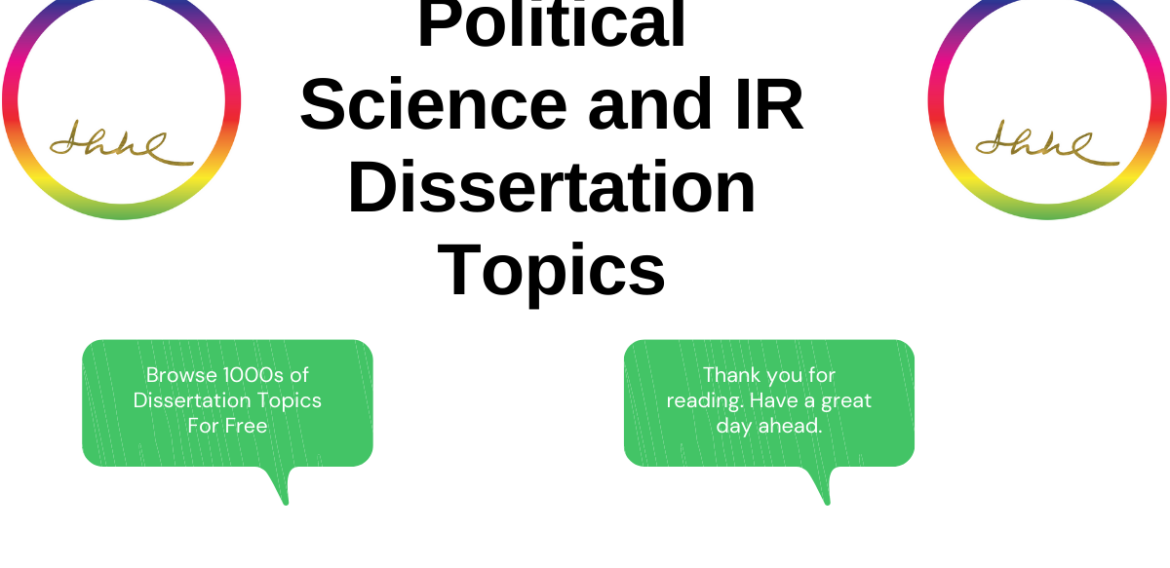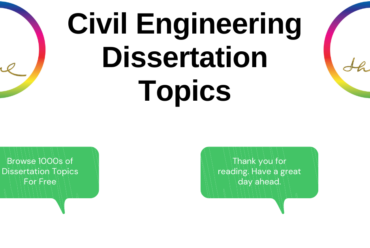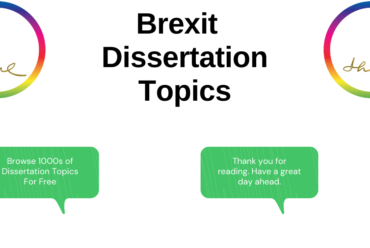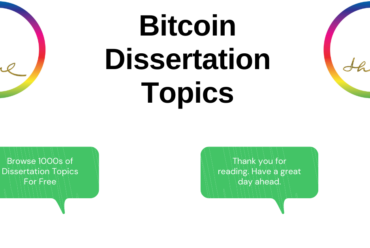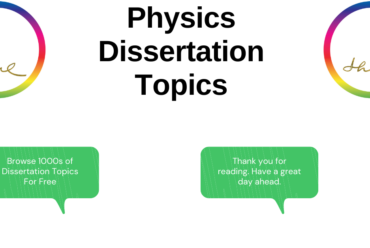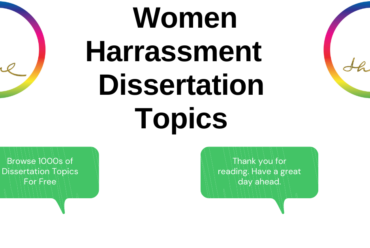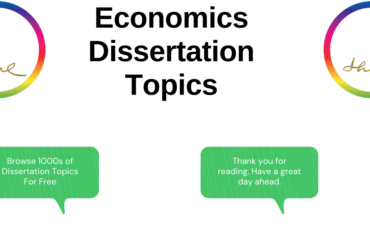Political Science and International Relations Dissertation Topics
Academic interest in politics is high right now, particularly in light of the significant political changes coming in 2020 and 2021, including Brexit, the covid19 crisis, China’s rise, and the lingering tensions in Eastern Europe. To get you started, here are some international relations and politics dissertation topics: The post-9/11 world and terrorism; the US foreign policy; the British foreign policy; and Africa’s role in international affairs and international law. Current geopolitical events are presented as questions to assist you in making informed choices.
Editingarsenal has compiled a list of some of the most popular and common dissertation topics from a variety of academic disciplines, so you can pick and choose what to write about. If you need dissertation editing assistance , don’t hesitate to contact one of our qualified and experienced editors and proofreaders.
US Foreign Policy Topics
- Although the US frequently refers to itself as the ‘global policeman,’ could such language be interpreted as a cover for simple bullying?
- Is the US always justified under international law in pursuing its national interests?
- Thus, how can the US be said to have crossed its boundaries by interfering in the internal affairs of other countries?
- The UN’s relationship with the US is ambiguous: to what extent do the US’ actions undermine the UN’s role?
- How does the development of nuclear energy by China and other Asian countries reflect the negative aspects of US foreign policy?
- In what ways does China’s ascension to economic and military superpower status endanger the US?
- The war on terror’s twenty-year duration, combined with tensions with Russia and China, has resulted in a militarised US foreign policy that benefits the military industrial complex, which frequently advocates for foreign intervention. Who, after all, is in charge of the United States’ foreign policy?
- What is the United States’ greatest external threat? How is this likely to affect US foreign policy in the future?
- Throughout history, the US foreign policy has been defined by liberal internationalism. How can liberal internationalism remain the guiding principle of US foreign policy in an unstable world where democracy and liberalism are threatened by China’s growing power?
- Will the US-Mexico border wall’s current construction have a negative effect on the global economy?
- What implications does Russia’s growing geopolitical power and influence have for the future direction of US foreign policy?
- How is the US likely to react to the United Kingdom’s exit from the European Union, or Brexit?
- With competing interests in the Middle East, Western and Eastern Europe, and the Indo-Pacific, does the United States’ foreign policy lack strategic focus, and if so, how?
- What are the long-term implications for US foreign policy of Trumpism’s rise? How will the United States respond to its own population’s growing isolationist and anti-war sentiments?
- To what extent will succeeding Administrations maintain or reverse Trump’s economic decoupling from China?
Africa in Global Politics Topics
- Has the West’s involvement in Africa exacerbated the problem?
- How much of today’s political strife in Africa between communities and ethnic groups is a result of colonial rule?
- How much of Africa’s conflict is attributable to ancient tribal traditions and religious beliefs?
- How do African countries’ conflicts affect their ties to the West?
- Attempts have been made by countries throughout the world to resolve tensions between warring African nations. How successful have they been thus far?
- What is the future outlook for African countries’ relations?
- Is the African Union effectively resolving Africa’s issues and providing Africa with a global voice?
- How successful have negotiations and reconciliation efforts been in resolving conflicts between African ethnic groups? How relevant are Western political ideals in an African context?
- Africa has the potential to be a destabilising force in global politics in a variety of ways.
- African politics are undergoing transformation as a result of the emergence of a middle class.
- How important are Islamist terrorist groups in Africa’s current conflicts?
- After a decade, is Africa’s counterterrorism effort still effective?
- What has been the international community’s political treatment of Africa, and what can be done about it?
British Foreign Policy Topics
- How will Brexit affect UK-European security cooperation when it comes to sharing data on criminals and terrorists?
- To what extent was free movement of people a factor in the UK’s decision to leave the EU?
- Why is the’special relationship’ between the UK and the US still relevant in today’s world, given the US’ growing interest in the Indo-Pacific?
- Is the United Kingdom, based on its foreign policy, a mere “pawn” of the United States?
- How much influence does British foreign policy have on the rest of Europe?
- How can the UK use its economic, military, and diplomatic might to bolster its global standing following Brexit?
- What would a Labour-led government mean for British foreign policy in the Middle East?
- Is it likely that Brexit will diminish the United Kingdom’s global influence, and if so, how?
- Is a close relationship between the UK and China still possible after Copid?
- Is the previous interventionist approach to British foreign policy politically and economically sustainable in the face of significant post-Covid economic constraints?
- How can the United Kingdom remain united in the face of threats to its unity from Northern Irish and Scottish independence movements?
- What strategic security measures can the UK take following Brexit to maintain Northern Ireland’s stability?
- Is the United Kingdom still a vital and relevant ally for the United States, despite significant reductions in the British Armed Forces in the aftermath of the Covid crisis?
- How can the UK’s foreign policy be revitalised if trade and economic priorities are linked to diplomatic and security objectives?
9/11 and Global Politics Topics
- To what extent do the 9/11 events corroborate Samuel Huntingdon’s theory of the ‘clash of civilisations’?
- Was immediate action taken in the aftermath of 9/11 sufficient to avert future acts of terrorism in the West?
- Were the US’s actions following 9/11 justified and proportionate?
- In what ways can we assert that the 9/11 events influenced international relations?
- How did 9/11 affect the West’s international relations with the Arab world?
- What are the critical political lessons that the West has learned in the aftermath of 9/11 and the war on terror that followed?
- What has been the impact of the ongoing war on terror on international trade?
- What is the definition of terrorism? Is the use of lethal force against terrorists, such as targeted killings and drone strikes, a justifiable response?
- How has the fear of terrorism influenced the domestic security legislation of Western countries in the aftermath of 9/11?
- How have countries justified their own security measures in the aftermath of 9/11 by citing the ongoing war on terror?
- 9/11: Was it the impetus for the Arab Spring’s political upheaval?
- How far has the current anti-terrorist campaign been used to repress civil liberties?
- Is the spread of terror attacks across multiple countries in recent years indicative of a failure of the war on terror?
- Is Western security policy beginning to shift away from the post-9/11 threat of terrorism and toward more conventional state-based adversaries such as Russia and China?
Second World War and Its Impact on Global Politics
- In the immediate aftermath of World War II, what role did the United States play in international relations and politics?
- To what extent did the United States “advantage” of Europe’s diminished position following the war in order to increase its own power?
- In the long run, the Marshall Plan benefited or harmed Europe’s economic recovery.
- To what extent did Germany’s division reflect the state of international relations at the time? Would it have resulted in improved international relations had Germany remained “united”?
- How did Europe’s postwar state render numerous countries susceptible to Soviet communist ideals and the Soviet Union?
- What were the Allies’ objectives during World War II? Were their objectives met?
- What effect did the immediate postwar period have on the subsequent half-century of European relations? What is the current status of this?
- What precipitated the ‘Cold War’? Which facets of international relations did it most significantly affect?
- How did the consequences of the ‘Cold War’ spread so quickly? How was the situation resolved?
- Which development was the most significant in postwar international relations?
- How effective were US reparations in protecting countries from the threat posed by the Soviet Union?
- What was the rationale behind the development of nuclear weapons? What impact did their actions have on global relations?
- How much of a contribution did World War II make to the formation of the European Union?
Russia and International Topics
- What effect has the collapse of the Soviet Union had on relations between Eastern Europe and the West?
- Has the EU’s expansion into Eastern Europe harmed or aided the formation of a “Single Europe”?
- What made Eastern Europe’s countries so susceptible to Soviet rule? What has changed now?
- How well integrated are Eastern Europe’s countries into the EU?
- What impact will China’s rise have on Russian-Western relations?
- What are the EU’s primary concerns in light of the accession of Eastern European countries?
- Why is Russia still viewed as a threat to Western values in today’s world?
- Is it true that the Cold War has ended?
- How did Russia’s annexation of Crimea and support for Ukrainian rebel forces cause a schism with the West?
- What role will ‘hybrid war’ play in Russia’s threat to the West now that Russia has reclaimed Crimea?
- Why is Russia attempting to maintain a strategic distance from the West based on historical ties?
- Why have Russia and the US never declared war on each other based on their current relationship?
- Has Russia’s threat to Eastern European nations gone unnoticed?
- How much of a role does Russia play in an increasingly fractious European Union?
- Russia’s hegemonic position in Eurasian politics and security is threatened by China’s rise. Is this going to continue?
- To what extent is it reasonable to anticipate the success of a Sino-Russian military alliance, and how would this impact European security?
- Are there any long-term ramifications of Russian hacker attacks on the US presidential election? Sabotage was a frequent occurrence during the Cold War. Are these attacks a novel form of external political influence?
- Nord Stream 2 is a contentious energy project. Increased reliance on Russia-Germany or simply increased Russian leverage, as the US asserts?
China and International Relations Topics
- How much has Western politics and ideals influenced China?
- Who knows why the Chinese government chose to ‘open’ an economy that had been extremely closed previously.
- The Chinese economy has shifted toward capitalism as a result of Deng Xiaoping’s reforms.
- What do Westerners think of China? Discuss.
- What possible benefit could China’s rapid economic development bring to the West?
- The West has not made a concerted effort to strengthen ties with China, which begs the question: why?
- How strong is the evidence that Chinese political ideals influenced Western policy? Is it improving or has it deteriorated?
- Why weren’t more efforts made to destabilise China’s communist government when the Soviet Union was viewed as a potential threat?
- Given how much the West has contributed to China’s rise, how can it be viewed with such suspicion? Discuss.
- What long-term consequences will the Covid crisis have on the US-China relationship?
- What will be the long-term consequences of China’s repression in Xinjiang for US-China relations?
- What are the benefits and drawbacks of China’s military attempt to retake Taiwan?
- What will be the global economic, security, and political landscape if China and India continue to clash?
- How complicated are China’s relations with the West as a result of the country’s record on human rights?
- Is Russia’s presence in Siberia threatened by China’s growing military might?
- President Xi Jinping has reversed which policies of Deng Xiaoping and Jiang Xemin?
- Has Xi Jinping’s appointment to rule ‘indefinitely’ had an effect on China’s democratic prospects?
- The western view that “capitalism and democracy go hand in hand” is refuted by China’s state capitalism model.
Israel Palestine and Middle East Conflict Topics
- What impediments have prevented the establishment of a Palestinian state?
- Who is more influenced by US-Arab relations than by US-Israeli relations?
- How did the Arab-Israeli conflict begin?
- Which single event epitomises the deterioration of Arab-Israeli relations?
- The West’s efforts to resolve the Arab-Israeli conflict have largely been unsuccessful.
- How far can Israel and Palestine progress toward a two-state solution while settlements continue to be built on Palestinian territory?
- Are the prospects for a two-state solution dwindling as Israeli settlements expand?
- Is it possible that a Palestinian state will one day be recognised?
- In comparison to Tibet, what do you believe the chances are of establishing a Palestinian state?
- What transpired when the Arab-Israeli conflict spiralled out of control?
- How far should the United Nations attempt to resolve the Israeli-Arab conflict?
- How far-reaching was former President Trump’s announcement that the US Embassy in Israel would be relocated to Jerusalem?
- What effect has the Arab Spring had on Arab-Israeli relations?
- Is it possible to regard the Palestinian Authority as a self-governing sovereign state?
- Does the UAE’s recognition of Israel mean that an Israeli-Palestinian agreement is now possible?
- Israel’s relationship with Russia and the ramifications for Syria and the rest of the Middle East
- What became of the Arab Spring’s early promises?
- What will be the long-term consequences of the Arab-Iranian conflict for the Middle East?
- Is the Arab world adequately prepared for a world without oil?
International Law Topics
- What impact has EU law had on the relationships between its members? Is this something that’s always been good?
- Because some countries are punished for breaking the law, but others aren’t. Discuss.
- How effective has the United Nations been in enforcing the law?
- Is the United States exempt from international law? Give examples to back up your claims.
- China and Russia have gotten away with breaking international law, but Iraq and Afghanistan are held accountable.
- Do you think the United States’ actions in Iraq and Afghanistan were justified?
- Is international law ever justified in using force?
- What international law reforms are required to enhance international relations? Are such alterations likely to take place?
- Is it possible for international law to be universally applicable in the face of such complex politics?
- Exactly how equal are all countries under the law?
- Does international law play a role when it comes to the use of drones?
- How effective is international law in the digital age?
- When it comes to the Syrian conflict, why has international law failed to provide a viable solution?
- With so many Great Powers routinely flouting international law, how can it be enforced against them?
India and Global Politics
- What lessons can the rest of the world draw from India’s experience combating terrorism?
- What are the UK’s advantages in maintaining a close relationship with India following Brexit?
- What role can India play in ensuring the ‘Quad’ is effective at balancing China?
- What effect has the export of Covid vaccines had on the international perception of India?
- Is the conflict between India and Pakistan having an effect on the United Kingdom’s security?
- What factors contributed to India’s democratic success?
- What effect did colonialism have on post-1945 Indian perceptions of the West?
- To what extent is it possible for India to grow economically while also addressing security concerns in its immediate neighbourhood?
- What role might India play in assisting Afghanistan’s stability?
- Does the growing Russian-Chinese relationship have any implications for Indian security?
European Union Topics
- What are the EU’s shortcomings when it comes to strengthening political ties between its members?
- What would make the EU an unsuitable location for developing relations with nations outside of it? I’m not sure how it qualifies as a ‘boys club.’
- How has the EU’s recent rapid expansion impacted pre-existing ideals and relationships among EU members?
- How much has our historical understanding of the United States’ formation influenced the formation of the European Union?
- Which aspect of the EU is the most detrimental to international relations? Why? What does this mean for the political future of the Union?
- Is NATO at risk as a result of the EU’s transition to “shared security”?
- What role, as a single actor, can the EU play in defence and security?
- Is it necessary for the EU to have state symbols and instruments such as a flag, an anthem, and a legislature?
- Is the concept of a “Single European Entity” a reality? Is this a good sign for international relations?
- What became of the earlier proposal for a “Single European Entity”? What was it about international relations that prevented this from occurring previously?
- To what extent is the EU structurally and functionally similar to the Soviet Union? Was the Soviet Union, then, a good thing?
- Was the United Kingdom’s decision to leave the European Union a watershed moment for other countries?
- What role does the EU play in maintaining peace in Northern Ireland? How does this compare to NATO’s role in Europe?
- How has the rise of populist movements on the far right in Europe impacted the Union’s stability?
- What effect has Middle Eastern mass migration had on Europeans’ overall satisfaction with the EU?
- Is the EU’s foreign policy, in comparison to other member states, excessively favourable to Germany and France?
- How much do energy projects such as Nord Stream 2 and the ongoing race for Middle Eastern oil serve as a reminder that Europe’s energy strategy needs to be rethought?
- How has the EU’s erroneous response to the Covid scandal impacted public perceptions of the EU more broadly?
- If this is the case, did each European country receive an equal share of the Coronavirus vaccines distributed across the continent? Delays in vaccine deployment and distribution are almost certain to have a political impact.
- Will the European Union be able to withstand the current outbreak of Coronavirus? Has the EU been harmed as a result of public perceptions of a slow response to the Coronavirus?

